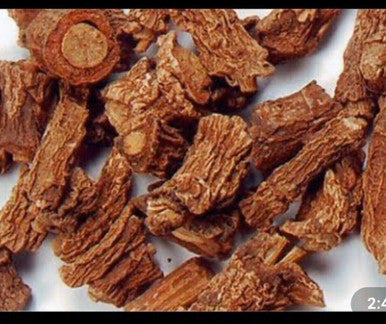1
/
of
1
Organic Rhubarb Herb 100g
Organic Rhubarb Herb 100g
Regular price
£11.00
Regular price
Sale price
£11.00
Unit price
/
per
Taxes included.
Shipping calculated at checkout.
Couldn't load pickup availability
Organic Rhubarb 100g
some of the key benefits of rhubarb:
1. Rich in Antioxidants
- Polyphenols: Rhubarb contains high levels of polyphenols, particularly anthocyanins, which give the stalks their red color. These antioxidants help protect the body from oxidative stress and reduce the risk of chronic diseases such as heart disease and cancer.
- Vitamin C: Rhubarb is a good source of vitamin C, which supports immune function, skin health, and wound healing.
2. Digestive Health
- Fiber Content: Rhubarb is rich in dietary fiber, particularly insoluble fiber, which aids in digestion by promoting regular bowel movements and preventing constipation.
- Natural Laxative: Rhubarb has natural laxative properties, making it helpful for relieving mild constipation. The anthraquinones in rhubarb stimulate the muscles of the colon, promoting bowel movements.
3. Bone Health
- Calcium: Rhubarb is a source of calcium, which is essential for maintaining strong bones and teeth. Regular consumption of calcium-rich foods like rhubarb can help prevent osteoporosis and other bone-related issues.
- Vitamin K: Rhubarb also provides vitamin K, a nutrient important for bone health and blood clotting. Vitamin K helps in the regulation of calcium, promoting bone mineralization.
4. Weight Management
- Low in Calories: Rhubarb is very low in calories, making it a great addition to a weight management diet. It can be used to add volume and nutrition to meals without significantly increasing calorie intake.
- Appetite Control: The fiber in rhubarb helps promote satiety, which can reduce overall calorie consumption and support weight loss efforts.
5. Heart Health
- Cholesterol Reduction: The fiber and antioxidants in rhubarb may help lower cholesterol levels, reducing the risk of heart disease. Fiber binds to cholesterol in the digestive system and helps remove it from the body.
- Blood Pressure: Rhubarb is a good source of potassium, which helps regulate blood pressure by counteracting the effects of sodium and relaxing blood vessel walls.
6. Liver Health
- Detoxification: Rhubarb has been traditionally used in herbal medicine for its detoxifying properties. It may support liver health by aiding in the elimination of toxins from the body.
- Fatty Liver Disease: Some studies suggest that rhubarb extract may help reduce fat accumulation in the liver, offering potential benefits for those with non-alcoholic fatty liver disease (NAFLD).
7. Blood Sugar Regulation
- Glycemic Control: Rhubarb has a low glycemic index, meaning it does not cause rapid spikes in blood sugar levels. This makes it a suitable option for people with diabetes or those trying to manage their blood sugar.
8. Anti-Inflammatory Properties
- Rheumatoid Arthritis Relief: Rhubarb contains compounds with anti-inflammatory properties that can help reduce inflammation in the body, which is beneficial for conditions like rheumatoid arthritis and other inflammatory disorders.
9. Potential Anti-Cancer Properties
- Rhubarb Extracts: Some research suggests that rhubarb extracts may have anti-cancer properties, particularly in inhibiting the growth of certain types of cancer cells. The anthraquinones and other compounds in rhubarb are being studied for their potential to prevent and treat cancer, though more research is needed.
10. Skin Health
- Topical Use: Rhubarb has been used in traditional medicine for its ability to treat skin conditions. The antioxidants in rhubarb may help reduce signs of aging, such as wrinkles and fine lines, and promote healthy skin when used topically.
Usage and Cautions:
While rhubarb offers many health benefits, it's important to note that the leaves of the rhubarb plant are toxic and should never be consumed. They contain oxalic acid, which can cause serious health issues if ingested. When using rhubarb, be sure to discard the leaves and only use the stalks. Additionally, because rhubarb contains oxalates, those with a history of kidney stones or other kidney issues should consume it in moderation.
Share


